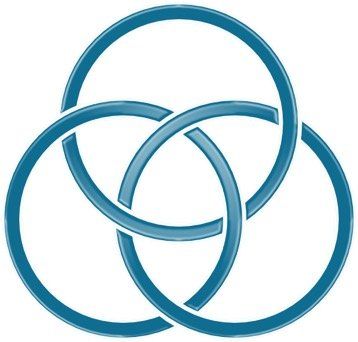EVIDENCE-BASED PRACTICE
Your time and money are valuable. Choose scientifically sound treatments.
"Not all mental health treatments are equally effective, and it helps to be educated when searching for a therapist."- Association for Behavioral and Cognitive Therapies
Evidence-based practice integrates the best available clinical scientific evidence with clients' unique values and preferences. For mental health professionals to truly engage in evidence-based practice, they must anchor treatment in the best scientific evidence available and use the techniques and psychological approaches that have scientific support. Unfortunately, many members of the public assume that all psychological treatments have been adequately tested in scientific research - and this is simply not the case.
Ultimately, it is my job to interpret the best evidence from systematic clinical research in light of your preferences, values, culture, and daily life realities. I rely on my own clinical expertise when integrating these different pieces of information to formulate your individual treatment plan.
I draw from the following empirically-supported treatment approaches:
- Cognitive Behavioural Therapy
- Acceptance and Commitment Therapy
- Mindfulness
- Dialectical Behaviour Therapy
- Pain Reprocessing Therapy
Cognitive Behavioral Therapy
Cognitive behavioral therapy (CBT) is a short-term, goal-oriented treatment that takes a practical approach to helping clients. Its goal is to identify and change unhelpful patterns of thinking and behavior that keep people stuck.
CBT is different from many other therapeutic approaches because it focuses on the ways that a person's cognitions (thoughts), emotions, and behaviors are connected and affect one another. Because emotions, thoughts, and behaviors are all linked, CBT approaches allow therapists to intervene at different points in the cycle.
In therapy, clients become aware of the ways in which their thoughts influence their feelings, and they learn how to notice, interrupt, and correct thought patterns that are distorted or unhelpful.
Similarly, clients learn how maladaptive behavior patterns can develop over time, and they develop skills to interrupt these patterns and act in new and different ways.
CBT has been shown over decades of research to be an effective treatment for a range of conditions, including anxiety disorders, depression, and chronic pain.
Acceptance and Commitment Therapy
Acceptance and Commitment Therapy (ACT) is an approach grounded in principles of cognitive behavioral therapy, with distinct features. ACT is based on the concept that ongoing attempts to suppress unwanted thoughts and feelings can paradoxically make these problems worse. Instead, it emphasizes learning new ways to accommodate difficult thoughts and feelings - primarily through mindfulness approaches - without letting them dominate, while guiding people to take proactive steps towards living in a way that is consistent with their values.
ACT has been shown to be useful for people with a range of health issues, including anxiety, depression, chronic pain, and cancer.
Mindfulness
Mindfulness is a term that is widely used in our society, yet poorly understood by many. I define it as the practice of creating moment-to-moment nonjudgmental awareness. Some mindfulness techniques emphasize sustained, moment-to-moment attention on a specific stimulus, such as the breath, body sensations, or sounds. Others aim to cultivate an openness to whatever comes into awareness, moment to moment.
Mindfulness is a key component of several psychological approaches, including Acceptance and Commitment Therapy, Dialectical Behavior Therapy, and Radically Open Dialectical Behavior Therapy. It also can be taught as a standalone skill.
Mindfulness practice has been shown to be effective for stress, anxiety, depression, and pain. Promising initial evidence suggests that mindfulness may reduce inflammation and boost immune functioning, although larger well-controlled trials are still needed. Mounting evidence further indicates that mindfulness interventions can improve attention-related outcomes (e.g., sustained attention, working memory) and reduce rumination.
Dialectical Behavior Therapy
Dialectical Behavior Therapy (DBT) is a specialized form of cognitive behavioral treatment. The term “dialectical” means a synthesis or integration of opposites. The primary dialectic within DBT is between the seemingly opposite strategies of acceptance and change.
DBT therapists accept clients as they are, while also acknowledging that they need to change in order to reach their goals. In addition, the skills and strategies taught in DBT are balanced in terms of acceptance and change. The four skills modules include two sets of acceptance-oriented skills (mindfulness and distress tolerance) and two sets of change-oriented skills (emotion regulation and interpersonal effectiveness).
Full DBT programs are comprehensive and include both weekly individual therapy and weekly skills training groups. Please note that while I teach certain DBT concepts and skills as part of my overall work with clients, I do not offer full DBT treatment in my practice.
If you are interested in a comprehensive DBT program or a DBT therapist, please consult Behavioral Tech's website
for listings.
Pain Reprocessing Therapy
Pain Reprocessing Therapy (PRT) is a new and innovative evidence-based treatment that retrains the brain to accurately interpret and respond to signals from the body, breaking the cycle of chronic pain.
I have advanced certification in Pain Reprocessing Therapy and have helped numerous clients substantially reduce or eliminate their chronic pain within one month of starting treatment.
